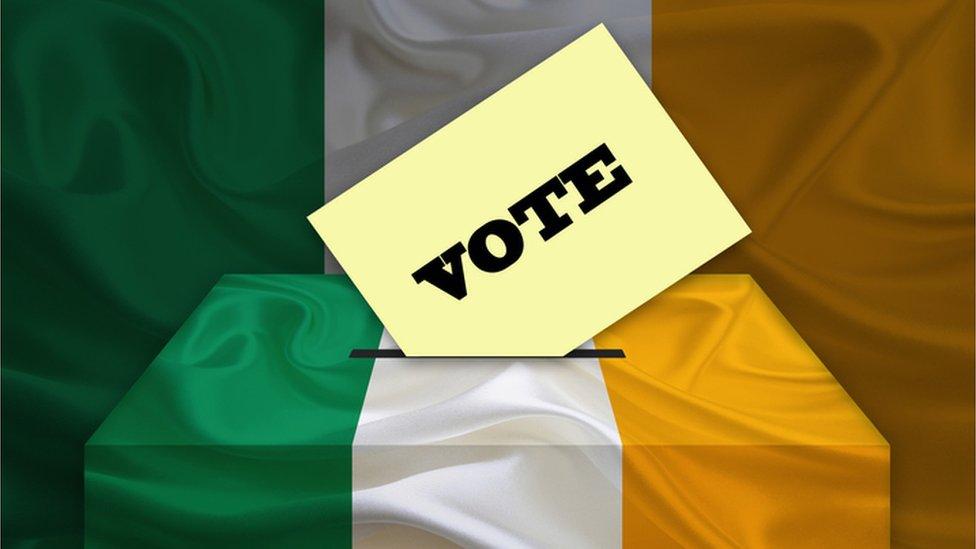Irish general election profile: Fianna Fáil's Micheál Martin
- Published
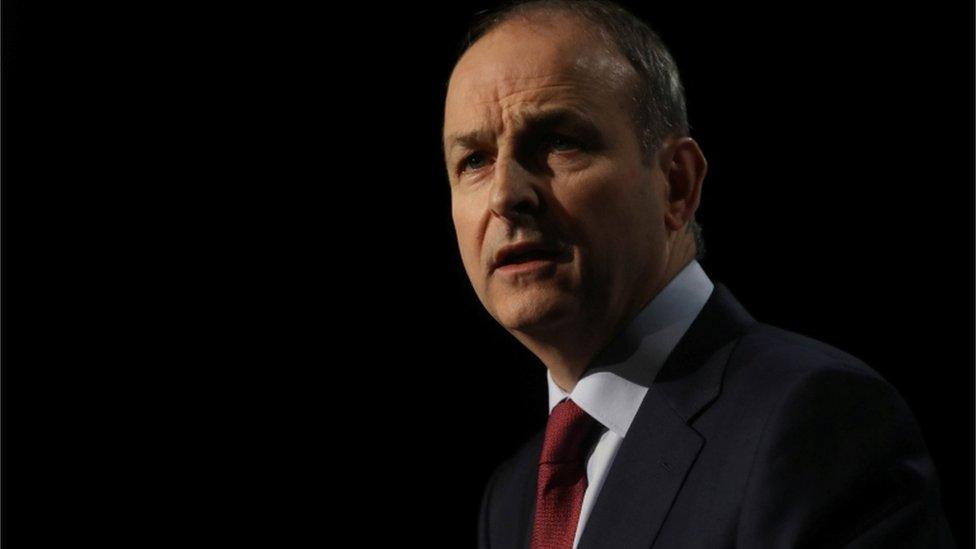
Micheál Martin has served in previous Fianna Fáil governments, including as health minister and foreign affairs minister
Micheál Martin has now led Fianna Fáil into three general elections and he is its only leader who hasn't also been a taoiseach (Irish prime minister).
He knows that election 2020 is his last and best chance to head a government.
A Cork native, he took over as the main opposition leader before the party's disastrous general election in 2011.
The party was almost wiped-out by voters for its economic stewardship that led to the property-related bank crash and an EU-IMF bailout.
Since then, he has put enough life back into the main opposition party to the extent that it is now once again on the verge of leading a coalition government.
'A ditherer'
Micheál Martin, 59, has been a member of the Dáil (lower house of parliament) since 1989 and was a cabinet minister in Fianna Fáil governments from 1997 to 2011.
During that period he has been a minister with responsibility for foreign affairs, health and children, education and science, and enterprise trade and employment.
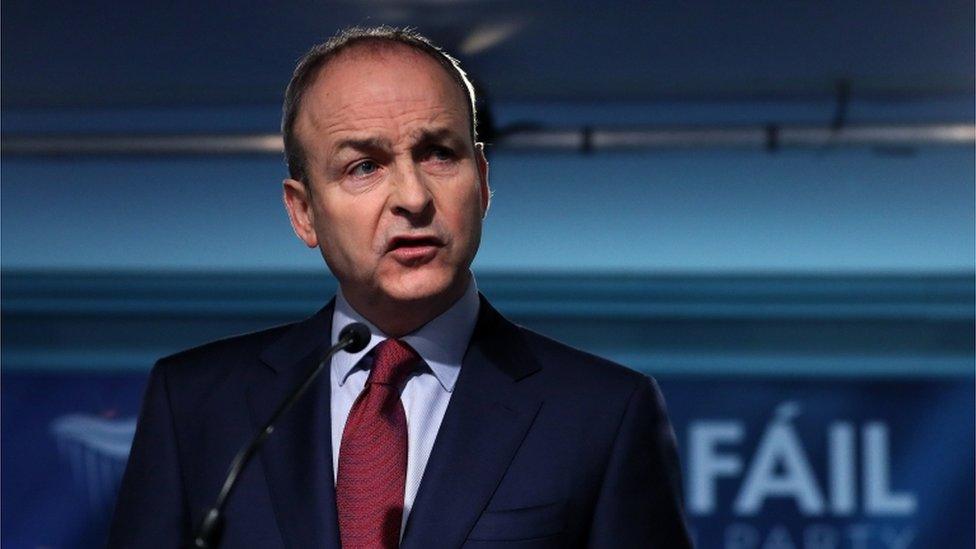
Micheál Martin has been leader of the opposition since 2011
Tall and lean, Mr Martin is known to be health conscious and he was the first national government minister in any part of the world to introduce a workplace smoking ban.
His opponents argue that apart from the smoking ban, he left no major mark in any of his portfolios and describe him as a ditherer who in the past showed an unwillingness to make tough decisions.
Mr Martin and his supporters believe that to be unfair, saying he honoured his word and took many tough decisions including going into a confidence and supply arrangement with Fine Gael, his party's traditional enemy after the 2016 general election.
'Make me pure'
Politically he regards himself as slightly left-of-centre which should be an asset if and when it comes to a possible coalition government formation with the Greens, Labour and other like-minded parties or independents.
He has been a consistent and harsh critic of Sinn Féin, repeatedly ruling out going into coalition with a party he believes is controlled by shadowy figures with an IRA past.
With Sinn Féin calling for the Irish government to set up some form of forum to prepare for a referendum on a united Ireland and to plan for the issues that might arise, he says now is not the time.
This is partly because the power-sharing devolved administration at Stormont has just been restored after three years and partly because he believes the last thing Northern Ireland needs now is more political uncertainty and instability.
As the leader of a republican party, his critics say he has an attitude to a united Ireland similar to that of St Augustine and sin: "Oh, Lord, make me pure - just not yet."
Micheál Martin, as a former minister for foreign affairs, has extensive EU experience and he knows how Brussels works.
He has supported Leo Varadkar's Fine Gael government on Brexit; all the main parties in the Dáil have done so.
So, any government led by him is most unlikely to lead to any change of policy.
If, as seems likely, voters want change but not too much of it, then Micheál Martin and Fianna Fáil represent the continuity change option.
- Published6 February 2020
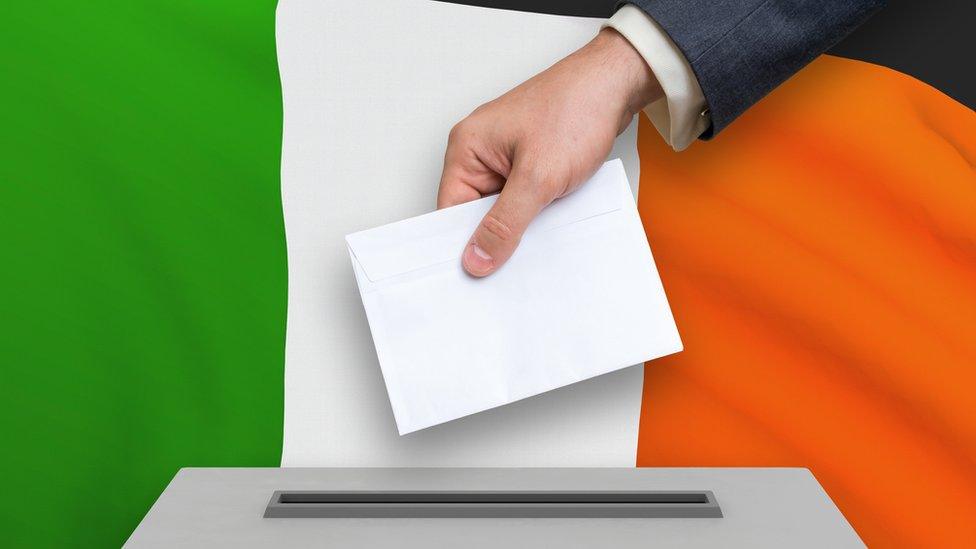
- Published3 February 2020
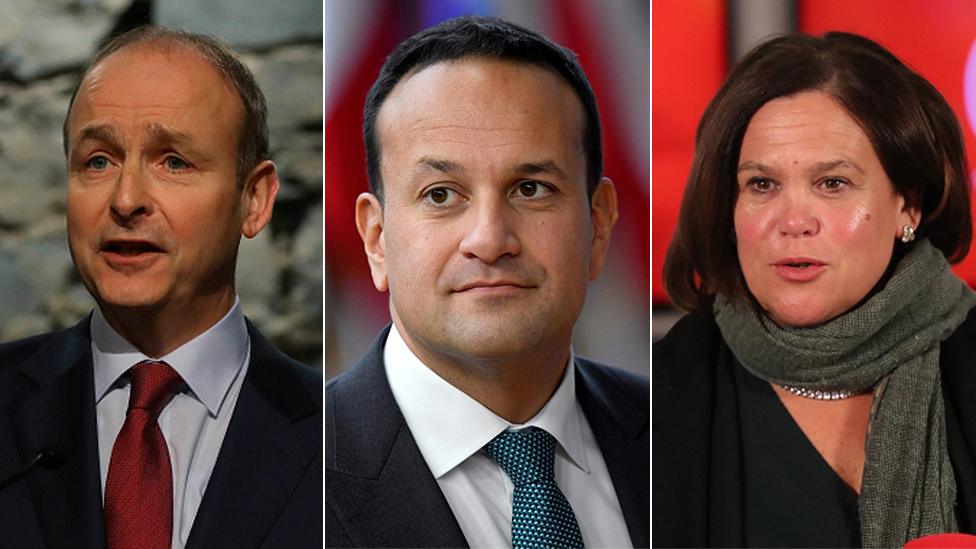
- Published13 February 2020
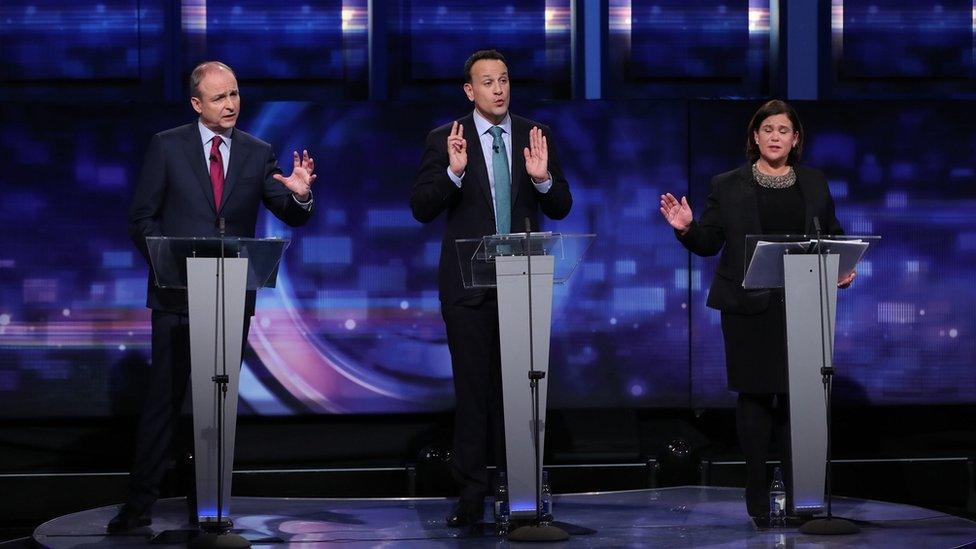
- Published24 January 2020
